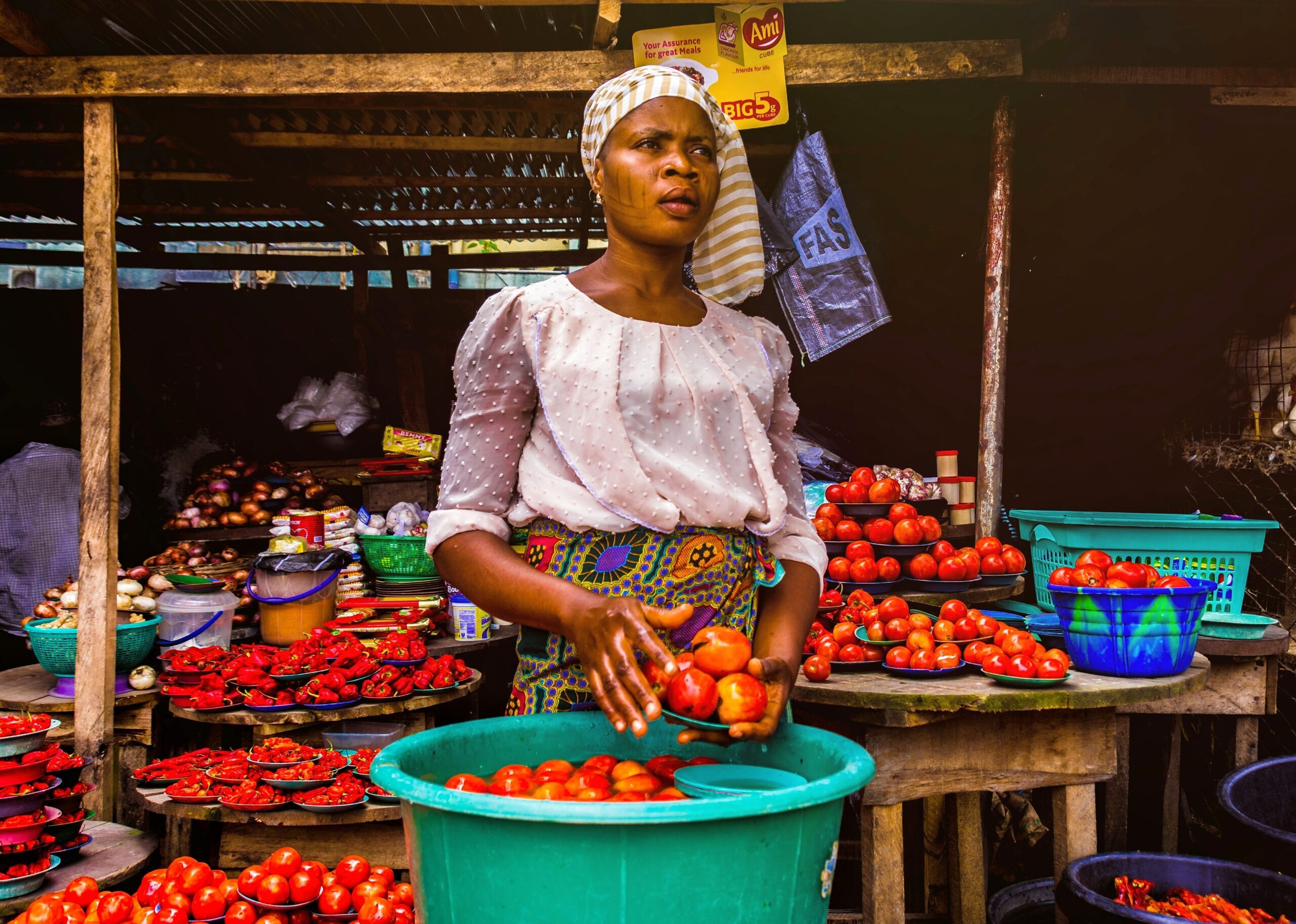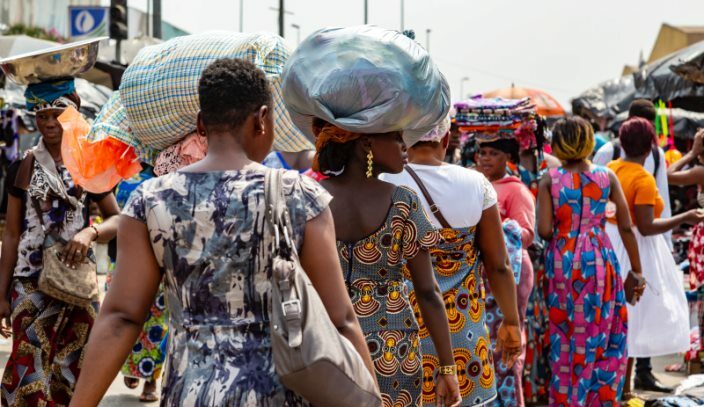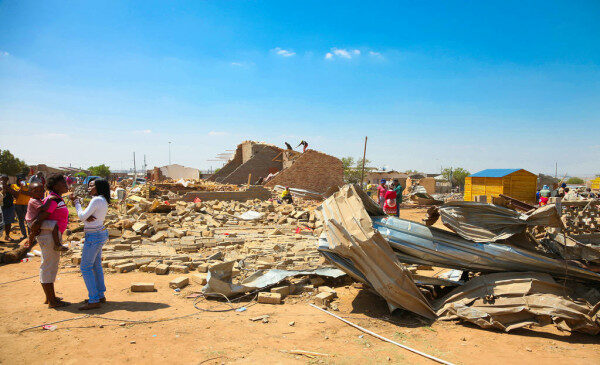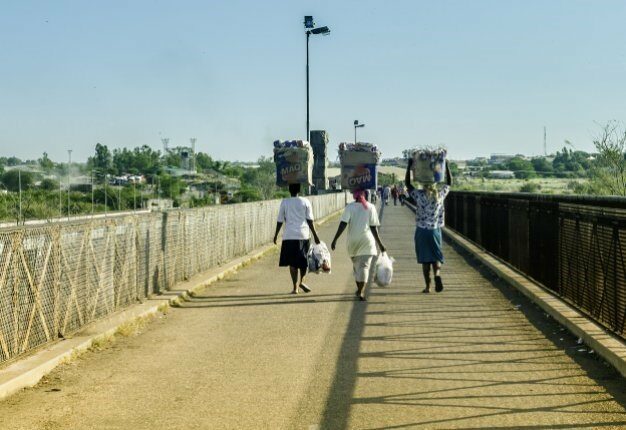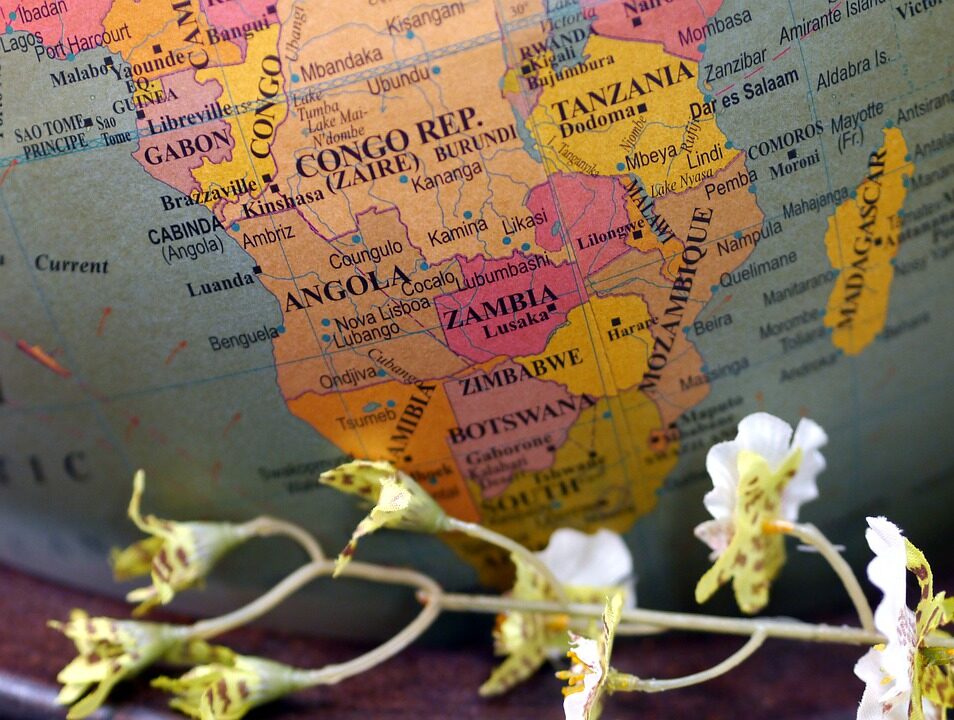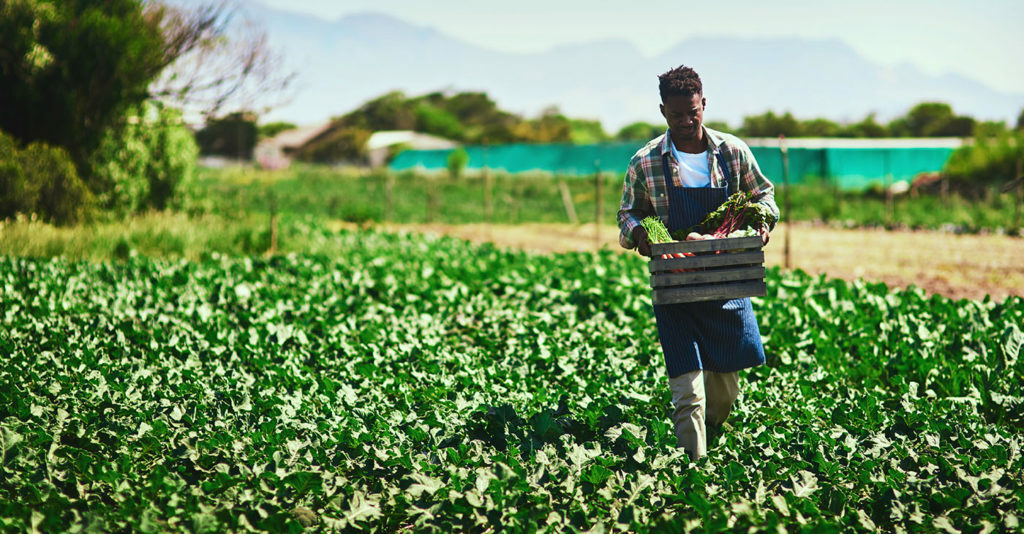SADC Regional CSO Consultation on the COVID-19 Crisis
Abstract
On the 2nd of April 2020, the Southern Africa Trust, together with the SADC Council of NGOs (SADC CNGO), convened a regional dialogue with civil society organisations to discuss and establish a common call for action amongst civil society actors in the SADC region in response to the COVID-19 global crisis. The dialogue provided a platform to share information, track the impact of COVID-19 on civil society institutions in the SADC region and draft common action points and commitment to effectively respond to COVID-19. About 20 regional organisations were in attendance, representing national associations of civil society, social movements, public health organisations, youth, refugees and migrants, ex-miners, small-holder farmers, rural women, women’s organisations, informal cross border traders, faith-based organisations and the private sector, among others.
List of Participating Organisations
- ACT Alliance (Ubambano)
- East and Southern Africa Farmers’ Federation (ESAFF)
- Economic Justice Network (FOCISSA)
- EQUINET – The Network on Equity in Health in Southern Africa
- Gender Links
- International Federation of the Red Cross and Red Crescent (Southern Africa)
- Rural Women’s Assembly
- SADC Council of NGOs
- SAFAIDS
- Sonke Gender Justice
- Southern Africa Cross Border Traders’ Association (SACBTA)
- Southern Africa Miners’ Association (SAMA)
- Southern Africa Peoples’ Solidarity Network (SAPSN)
- Southern Africa Trust
- Southern Africa Youth Forum (SAYoF)
Click here to access the call to action.
Supporting women cross border traders in Zambia
The Southern Africa region sees a high number of women cross border traders who ply their trade with their grown and handmade produce. Access to services and information empowers these traders to operate more efficiently within respective customs laws.
We recently co-hosted a campaign in Zambia with the Southern Africa Cross Border Traders Association (SACBTA) where we launched the SMS platform which Cross Border Traders can use to get assistance with trade-related matters especially at border ports.
Southern Africa Trust Statement of Action
The COVID-19 pandemic has brought with it unprecedented circumstances globally that have necessitated action-based interventions and reflections on present policy stances across industries. The gradual easing of lockdown regulations within the Southern Africa region to ensure paced economic rejuvenation amidst the crisis, has created a conundrum of development. Governments have to balance the livelihood of citizens and economic functionality, a win for the private sector at the cost of the public.
The lockdown regulations implemented were not inclusive to communities of poor socioeconomic backgrounds nor to those who form part of the informal sector, migrants or small-scale farmers.
Since the start of the pandemic our primary concern has been towards women, informal and cross-border traders, small scale farmers, migrant workers and refugees, domestic workers, small businesses, and ex-mineworkers in the region. These are individuals who are typically primary economic providers for their families but are vulnerable to exposure to the virus and the economic shocks therewith. It has therefore been a critical task and goal for civil society organisations that work with these groups of individuals and entities to find amicable solutions to provide relief and financial assistance.
With the number of COVID-19 infections, deaths and lockdown measures implemented in the region, we recognise the need for consistent civil society interventions. Interventions that will be targeted at vulnerable and disenfranchised populations of our region. We stood in solidarity and made a call for action at the start of the pandemic, but we could not have anticipated the effects since then. However, many heeded the call and through engagements, bringing about many lessons about development, resulted in a point of reflection:
- We commend the continued resilience and adaptability of civil society organisations, communities and the SADC region thus far in their ability to grapple with theCOVID-19 reality and their attempts to adjust accordingly.
- In times of crisis we realise that young people hold the key towards our collective ability to build a cohesive future and that future investment needs to be targeted at youth initiatives. The vibrancy of the youth civil society population has played a major role in the adaptability to the virtual reality and in finding ways to continue being efficient and influential.
- COVID-19 amplified challenges to accessing funding for most civil organisations therefore limiting their functionality. It is therefore pivotal for organisations to shift from developing funding proposals to finding ways to generate own resources through social enterprise and to be sustainable.
- Cross-border traders, women in particular, have not been able to access inputs in other parts of the region due to the lockdown and this has impacted their ability to provide and sustain themselves and their families. To address this, a back-up social protection system in the SADC region will need to be put in place. A social insurance system that can provide basic income for all citizens should such a crisis occur again.
- As a result of the pandemic, the world has moved into a technological and virtual era. However, the Southern Africa region and its civil organisations continue to experience gaps in these advancements. These gaps have been in the form of technological astuteness, load shedding, access to fibre, or simple access to the necessary gadgets for the beneficiaries.
- Due to all the deterrences caused by the pandemic, there has been a policy lag. Governments have been using the crisis as an excuse to defer from implementing pending policies. The duty of the civil society is to find a balance between ensuring advocacy whilst holding governments accountable in times of crisis.
Our statement does not end here and the lessons learnt thus far will be translated to innovative interventions. We will remain engaged with civil society organisations and grassroots communities through our targeted initiatives, as we ensure the voices of the marginalised are included at the tables of policy decision making which affect their quality of life.
We firmly believe that in the same way the region has overcome past pandemics and injustices, we will overcome Coronavirus. The future of the region is in our hands.
From the Board and Executive Management of Southern Africa Trust
Preparing for Disasters and ensuring real recovery in SADC region
The state of disaster preparedness and climate resilience in the southern Africa region has come under the spotlight as the world commemorates the first anniversary of the Cyclones Idai and Kenneth. Exactly 1 year ago, these two natural disasters left immeasurable damage in 7 of the SADC countries, with over 2000 lives lost, hundreds of citizens left in disarray and millions of dollars’ worth of damage to homes and infrastructure.
While the aftermath of these massive cyclones resulted in an unprecedented humanitarian disaster in the region, the stark reality of the state of unpreparedness for disasters was exposed. This summoned the need for a collective and proactive approach to disaster preparation by government, rescue organisations and civil society.
In response to this, the Southern Africa Trust alongside six other organisations facilitated a dialogue which gathered citizens of affected communities in Mozambique, Zimbabwe and Malawi, civil society representatives and local government to reflect and contribute to a solution. The fellow organisations are the Centre of African Philanthropy and Social Investment (CAPSI), Amnesty International, National Association of Non-Governmental Organisations (NANGO), Action Aid Mozambique, Southern Africa Youth Forum (SAYOF), and SADC Council of Non-Governmental Organisations (SADC-NGO).
Taking place from 2 to 4 March 2020 in Mutare, Zimbabwe, this gathering highlighted how citizens and participants have experienced existing regional Disaster Recovery Models. The report and recommendations from this dialogue will be submitted to the SADC Disaster Preparedness Technical Working Group via organisational co-members for the purposes of contributing to upcoming Disaster Preparedness Framework policy discussions within the region.
Making Cross Border Trade work for Women in Malawi, Zambia and Zimbabwe
- Provide access to capital and funding by sourcing alternative lending streams
- Expand the customer base for women traders, offering a wider market – with an ultimate goal of supplying larger retail stores
- Improve supportive public services, including border/custom controls, healthcare, home affairs and policing
- Assist with general trade issues, like the current COVID-19 restrictions, which affect the livelihood of traders
Southern Africa Trust CEO announced as Aspen New Voices Fellow for 2020
The Southern Africa Trust is excited to have Chief Executive Officer Masego Madzwamuse accepted as a fellow on the ground-breaking Aspen Institute New Voices Fellowship for 2020. This is a select gathering of experts from across the landscape of developing countries who are seeking to fulfill a role as advocates and policy makers in the context of global development.
This fellowship is a one year non-resident programme which will see Masego form part of a diverse cohort of 25 development experts from 16 African, Asian and Latin American countries. The Aspen New Voices Fellowship is supported by the Bill & Melinda Gates Foundation and the Open Societies Foundations and was established to bring the essential perspectives of development experts from the developed world into the global development conversation. The Aspen Institute is a nonpartisan forum for values-based leadership and the exchange of ideas.
“I’m very much looking forward to the journey that lies ahead as I begin this once in a lifetime fellowship with the Aspen Institute. Having worked heavily on intersection of poverty and inequality with climate change, I am ready to strengthen my capability and capacity in advocating for social and economic justice across Southern Africa.That said, I am most excited that this supports the mandate of the Southern Africa Trust which is to represent and empower the agency of the poor in regional policy processes.”says Masego Madzwamuse.
Masego seeks to engage diverse audiences across Africa on discussions about the world’s impending environmental crisis and climate emergencies and wants to amplify the voices of those who are most affected. She is available to engage on panels, requests for comment and dialogues focused on this burning topic.
For more information on the New Voices Fellowship, please visit www.newvoicesfellows.aspeninstitute.org
Unprecedented Times: SADC Regional Integration Agenda responding to COVID-19
Southern Africa Development Community (SADC) will be adopting new measures and taking steps that will help the region to contain the spread of COVID-19 as well as pursue its regional integration agenda. The COVID-19 crisis has called for a joint response and call to action among key stakeholders including policymakers, civil society and private sector groups. This coordination will support the efforts to contain the spread of the virus, while still achieving regional aspirations in key priority areas for the region, including trade, agriculture and industrialisation.
The Southern Africa Trust has produced the SADC Regional Integration Toolkit to provide information and knowledge that will contribute towards increasing citizens’ participation and involvement in the implementation of the region’s integration agenda. The role of civil society is both important and critical in policy processes because of its interface and proximity with citizens and communities affected by poverty and inequality.
Click here to access the Toolkit.
Official Statement on COVID19 (Coronavirus)
The rapid spread of COVID19 is an enormous cause for concern, particularly for the well-being of people who have limited access to key public services (health facilities, water and shelter) that are crucial for managing the spread of the virus.
We are highly concerned about the capacity of public health care facilities to cater to the needs of people in the event of increased infections, from testing and diagnosis right through to treatment. We call upon leaders of the 16 SADC nations to prioritize the well-being of the public & implement the necessary decisions that will better contain viral spread and minimize its impact. We commend SADC for suspending all meetings in the interest of public health and the leadership of Namibia, Botswana, Angola and South Africa on their responses to COVID19. We call on all SADC member states to implement necessary travel bans, public gathering control steps, public education and awareness campaigns and other measures required to contain its potential spread.
To our civil society partners, we ask that you continue your important work while sharing awareness of COVID19 to your respective groups. Your voices will minimize the spread of false information. We refer all our partners and beneficiaries to the World Health Organisation for all latest updates on COVID19. Now is the time to communicate true and life-saving information, especially to citizens who may not have access to internet services.
Our organisation has heeded the declaration of the state of national disaster in South Africa. As of today, 16 March 2020 all employees of the Trust will work remotely until 14 April. Thanks to technology, our work will continue – we remain online and can be contacted via email. All travel by our staff members has been cancelled & planned events will either be postponed or hosted via webinar.
It is through precaution, correct communication and caring for each other’s well-being that our region will overcome this pandemic. Southern Africa Trust stands with nations and the world by playing our part ending COVID19.
From Southern Africa Trust Executive Management
Christabel Phiri discusses how the Botswana farming sector can address SADC food security
Listen as our Mobilisation and Engagement Manager Christabel Phiri unpacks the possibilities that farmers in Botswana have available to them in addressing food access, especially in relation to the countries’ recent State of the Nation review from their minister of Agricultural Development and Food Security.
Click here to listen to the conversation.
Date – 12 December 2019
Host – Neo ‘Skillo’ Aabobe
Stadion – Gabz FM
Show – Farmers Diary








